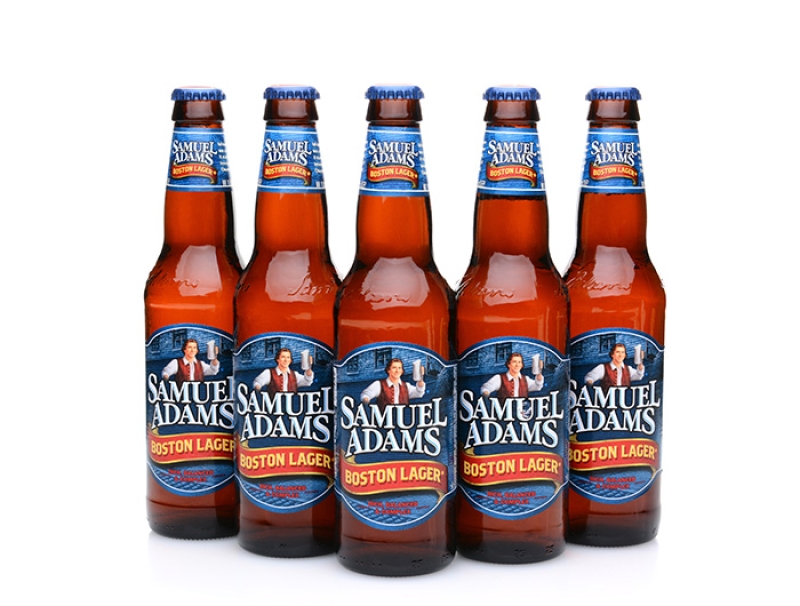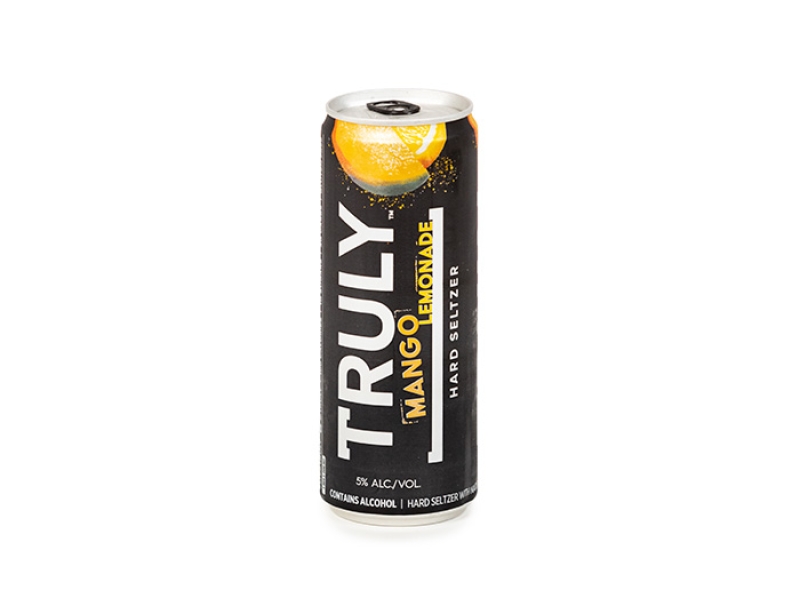Currently, manufacturers are not required to include nutritional information on alcoholic beverage containers. Here are some reasons why CSPI is calling for mandatory alcohol labeling and flagging concerns about alcohol marketing practices:
Why don’t all alcoholic drinks come with nutritional labels?
Excessive alcohol consumption has become a costly public health issue with a significant increase in alcohol-related deaths in recent years. Of major concern, approximately 30% of traffic fatalities in the United States involve alcoholic beverages, and excessive drinking increases the risk of liver disease, hypertension, cardiovascular disease, alcohol use disorder, certain cancers, and serious injury. Additionally, alcoholic beverages are a source of empty calories that contribute to obesity and can affect glycemic control in people with diabetes.
Alcoholic beverage labels are not required to include information such as the number of standard drinks per container that would encourage consumers to drink in moderation. Additionally, calorie, ingredient, and nutritional information are not currently required to be listed on all alcoholic beverages. Like other foods and beverages, alcoholic beverages contain a variety of ingredients and additives that consumers require or want to avoid for health, safety, religious, or other reasons. This is especially true for the millions of Americans with food allergies, for whom labeling is a matter of life and death.
So why doesn’t alcoholic beverage packaging include this important information?
Alcohol regulation is largely outside the FDA’s jurisdiction
Unlike other foods and beverages, which are regulated by the Food and Drug Administration (FDA), most alcoholic beverages are regulated by the Treasury Department’s Alcohol and Tobacco Tax and Trade Bureau (TTB) and do not require comprehensive labeling, so consumers cannot tell from the label how many calories or ingredients are in Samuel Adams Boston Lager.

Louise Shumbris-Cukrov – stock.adobe.com
Photo: Louise Shumbris-Cukrov – stock.adobe.com
But Truly Hard Seltzer, which is made by the same company (Boston Beer Co.) and has the same alcohol content as Samuel Adams Boston Lager (5% ABV), is one of the relatively few alcoholic products subject to FDA regulation and therefore must list calories, ingredients and other nutritional information.

Sean Locke – stock.adobe.com
Photo: Sean Locke – stock.adobe.com
Addressing Alcohol Label Deficiencies
In 2003, CSPI and a coalition of dozens of other organizations and individuals petitioned the TTB to fix this flawed system. More than 20 years later, the TTB has still delayed action. Instead of a mandatory labeling policy, the Treasury Department implemented a voluntary system that allows companies to include nutritional and allergy information on their products if they wish. A CSPI analysis of the implementation of these voluntary labeling policies found low adoption rates of these labels among major wine and beer companies, highlighting the need for mandatory labeling.
After years of inaction on petitions, CSPI, the Consumer Federation of America, and the National Consumers Federation sued the Treasury Department to enforce its decisions on alcohol content, calories, ingredients, and allergen labeling requirements. Specifically, the coalition argued that the TTB violated the Administrative Procedure Act by failing to respond to petitions within a reasonable time frame.
In November 2022, the TTB sent a letter to the plaintiffs in the lawsuit agreeing to issue proposed rules to require standardized alcohol content, nutritional content, ingredients, and allergens labeling on all alcohol products under its jurisdiction. The TTB has stated its intention to publish three proposed rules on nutritional content, ingredients, and allergens labeling by the end of 2023, but the department has not yet issued the rules.
Thus, in a February 27, 2024 letter, CSPI and a coalition of consumer and health groups urged Treasury Secretary Janet Yellen to ensure that the TTB follows through on its promise to require standardized alcohol labels on all beer, wine, and distilled spirits products by initiating promised rulemaking.
Public hearing on alcohol labels
This latest appeal comes as the TTB begins a series of “hearings” on alcoholic beverage labeling and advertising on February 28-29, 2024. A coalition of public health groups expressed concern that the hearings are merely a delaying tactic to maintain the status quo and “months of delayed deliberations,” and called on the TTB to issue proposed rulemaking by June 2024.
In oral testimony at the hearing, CSPI urged the TTB to prioritize transparency and health over corporate interests when drafting rulemaking and not to further delay issuance of proposed mandatory alcohol labeling rules.
In March 2024, CSPI also submitted written comments and formed a coalition of 34 organizations and individuals to sign a coalition comment petition urging the TTB to promptly issue proposed rulemaking on mandatory labeling of alcohol content, nutritional information, major allergens, and ingredients.
Other concerns in alcohol marketing
The lack of mandatory nutrition labeling is not the only concern with alcoholic beverage marketing: alcoholic beverage manufacturers employ many problematic marketing practices that CSPI is working to address.
Juice and soda brands expand into alcoholic beverages
Since 2019, the market for hard seltzers, hard sodas, and specialty malt drinks has exploded, with brands that traditionally make non-alcoholic drinks branching out to produce alcoholic products. Mountain Dew, Sunny Dee, and Simply are just a few of the well-known non-alcoholic beverage brands that have recently introduced alcoholic products for the first time. Similar to hard seltzers, these products typically contain around 5% alcohol and are often marketed as healthier, lower sugar, or fruit-flavored drinks.
The labels of these new alcoholic products often include the words “hard” or “spiked” and/or alcohol content disclosure, but otherwise the layout and design are similar to, and in some cases nearly identical to, their non-alcoholic counterparts. The recognizable packaging, combined with fruit flavors, bright colors, and low sugar and calories, appears to target younger consumers such as Gen Z, who industry experts believe prefer low-calorie fruit-flavored alcoholic beverages. The concern is that this risks attracting underage drinkers or causing confusion among consumers who perceive the products as non-alcoholic due to the label similarity.
Some states have taken steps to prevent these products from being misleadingly marketed on store shelves, but further action by the TTB, FDA, and Federal Trade Commission could help address the problem by highlighting misleading sales practices and preventing alcohol manufacturers from luring young people through their sales tactics.
Questionable claims and the power of consumer advocacy
Some alcoholic beverage brands have misleading nutritional claims about their products, and CSPI has worked to address this issue. Take the case of Vizzy hard seltzer, for example. In one of Vizzy’s ads, the brand touted that it was “the first hard seltzer with antioxidant vitamin C from the superfruit acerola.” Another ad differentiated it from competitors by saying, “Yes, but we have antioxidant vitamin C.” At one point, Vizzy’s label said that each can contained 18 milligrams of vitamin C, or 20 percent of the vitamin’s recommended daily intake, because its final ingredient was dried acerola cherry juice.
This is misleading because it suggests that alcoholic beverages are a healthy source of vitamin C. However, consumers should get their vitamins from food, or multivitamins or supplements if needed, not from alcohol. And according to the FDA’s own fortification policy, manufacturers may not add vitamins or minerals to alcoholic beverages.
CSPI, along with the Consumer Federation of America, wrote a letter to the FDA urging it to take enforcement action against Molson Coors Beverage Company, the maker of Vizzy Hard Seltzer. The letter argued that making claims about FDA-regulated alcoholic beverages based on the presence of nutrients added through fortification is illegal under FDA regulations.
Eventually, public concern about Vigie escalated into a class action lawsuit in California alleging Vigie’s deceptive practices. Molson Coors settled the lawsuit, agreeing to compensate consumers and to stop using deceptive labels on Vigie.
The Vizzy case illustrates one way change can happen in the world of alcoholic beverage marketing: the power of consumer-centered advocacy to catalyze class action lawsuits and drive positive change in deceptive marketing practices.
How You Can Help
To express your concerns about the need for improved alcoholic beverage labeling, you can submit comments to the TTB calling for nutrition, calorie, allergen, alcohol content, and ingredient labeling on all alcoholic beverage containers. You can also support CSPI’s ongoing efforts to ensure a safer, healthier, and more transparent food system through consumer-focused advocacy.
Tell regulators: Alcoholic beverages need comprehensive packaging labeling

